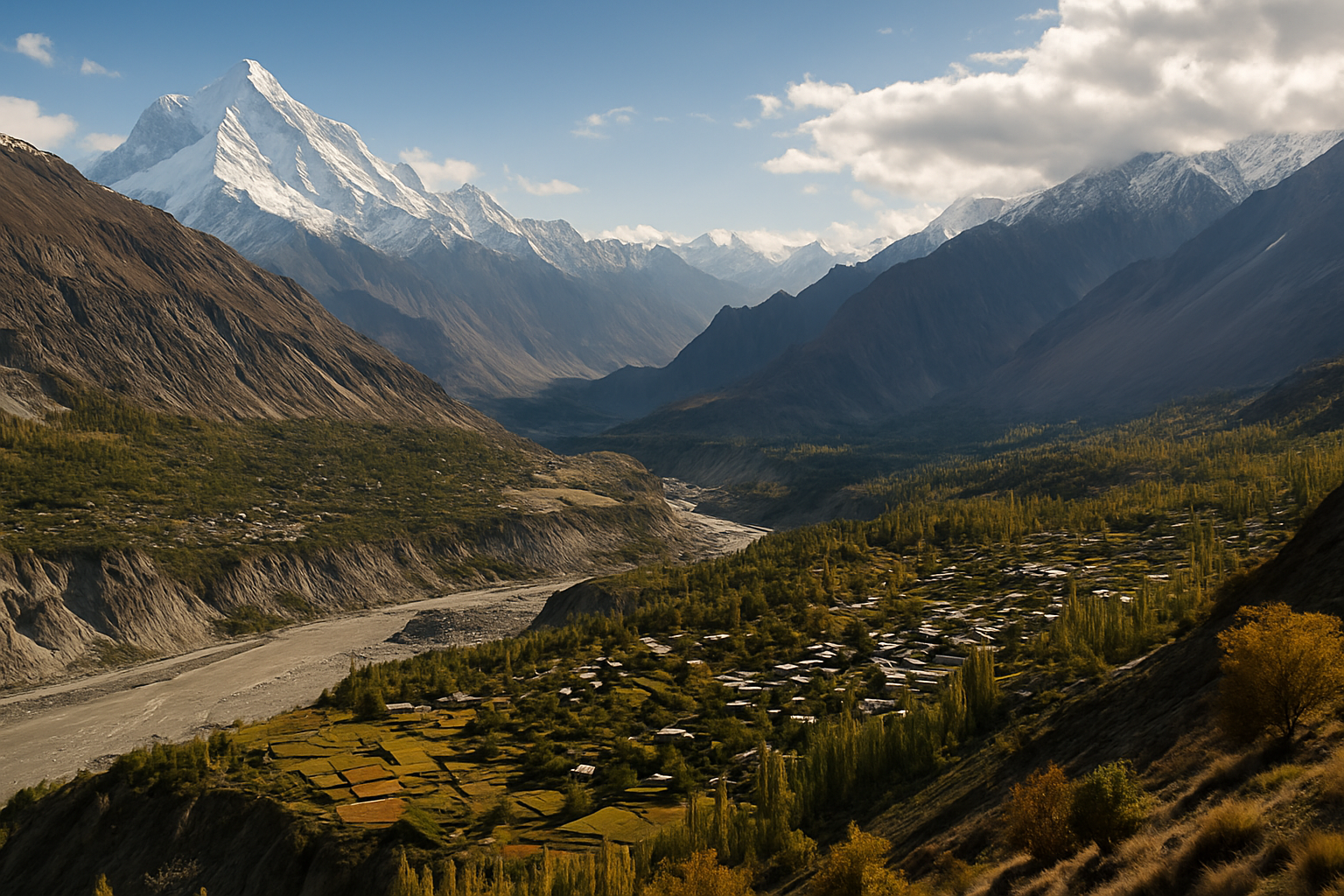Gilgit-Baltistan (GB), positioned at the crossroads of the Himalayas, Karakoram, and Hindu Kush, possesses some of the richest natural endowments in South Asia. Its mountains are filled with valuable minerals, its rivers offer enormous hydropower potential, and its valleys yield herbs and gemstones that command high commercial value. Yet despite this abundance, GB’s people remain economically marginalised. The reality of poverty amid such immense wealth reflects a governance structure designed to extract value rather than empower local communities.
Governance by Executive Orders, Not Constitutional Rights
GB’s political uncertainty lies at the centre of its economic plight. Unlike Pakistan’s provinces, GB does not fall under the Constitution but is governed through successive executive orders, leaving its residents without representation in the National Assembly or Senate. The absence of constitutional status also prevents GB from participating in institutions such as the National Finance Commission or the Council of Common Interests, which oversee revenue-sharing and resource management across Pakistan.
This exclusion ensures that the wealth generated from GB’s land, water, and minerals flows almost entirely to Islamabad and military-linked interests, not to the people who reside in the region.
Hydropower Potential Wasted, Electricity Shortages Worsen
GB generates the waters that power Pakistan’s major dams, yet it cannot meet its own energy needs. Despite an immense hydropower potential estimated at more than 40,000 MW, only a small fraction has been developed. Ageing generation units, poor maintenance, and inadequate planning leave towns and villages in darkness for most of the day.
During winter, outages routinely extend to twenty-three hours at a time. Residents are forced to burn wood for heating, worsening deforestation and environmental degradation. Businesses regularly incur losses, with hotels and food establishments struggling to preserve perishable goods. The stark contrast between GB’s hydropower potential and its lived experience fuels widespread anger across the region.
Minerals Extracted, Communities Excluded
The richness of GB’s subsoil has attracted considerable interest from foreign companies and Pakistani corporations. The region contains deposits of gold, copper, rare earth minerals, and some of the world’s most sought-after gemstones. Locals complain that mining contracts are awarded with little transparency, often involving land acquisition that disregards community ownership traditions.
Revenues are managed outside the region, and GB’s communities receive none of the royalties that Pakistani provinces earn from similar extraction industries. Reports indicate that billions of rupees worth of minerals and gemstones have been extracted over the years, yet GB continues to suffer from poor services, inadequate schools, and minimal employment opportunities.
Botanical Wealth Profited From, Not Shared
The natural resources of GB extend beyond minerals. The region produces medicinal herbs and flowers valued at several billion rupees annually. However, available records do not show any revenue transfers from these products to GB’s administration. Pakistani companies, meanwhile, earn substantial profits from processing and exporting these botanicals. This pattern reinforces the perception that GB is treated merely as a raw material hub for distant beneficiaries.
Political Marginalisation and State Suppression
The absence of constitutional protection also allows the state to suppress dissent with ease. Political activists advocating ownership rights or demanding accountability for resource extraction have frequently been detained under broad anti-terrorism laws. Journalists face intimidation when reporting on land disputes, illegal mining, or environmental damage. Human rights defenders note that GB’s residents cannot petition Pakistan’s Supreme Court, leaving them with limited legal recourse against federal or military actions.
Growing Public Anger and the Rise of Grassroots Movements
Public frustration has escalated as communities confront rising wheat prices, erratic electricity supply, and shrinking economic opportunities. Grassroots movements such as Haq-e-Malkiyat and the Awami Action Committee have gained prominence, mobilising thousands against land seizures, exploitative mining licences, and the absence of revenue-sharing mechanisms. Protesters argue that the decisions shaping GB’s future are taken in Islamabad without consulting those whose livelihoods are directly affected.
These movements have also criticised the militarisation of governance, describing it as a system that prioritises strategic interests and resource extraction over the welfare of the local population.
A Future Held Hostage by Constitutional Ambiguity
The root of GB’s crisis remains the unresolved question of its status. As long as the region is governed outside the Constitution, it will continue to lack the authority to control its natural resources or benefit from their revenues. The current administrative arrangement enables extractive behaviour that would face far greater scrutiny in Pakistan’s provinces.
For the people of Gilgit-Baltistan, the issue is not merely economic mismanagement but a structural problem: their land is a critical resource base for Pakistan, yet they are denied the political rights and economic returns that form the basis of citizenship. Until this imbalance is addressed, GB’s extraordinary natural wealth will continue to be a source of grievance rather than prosperity.

